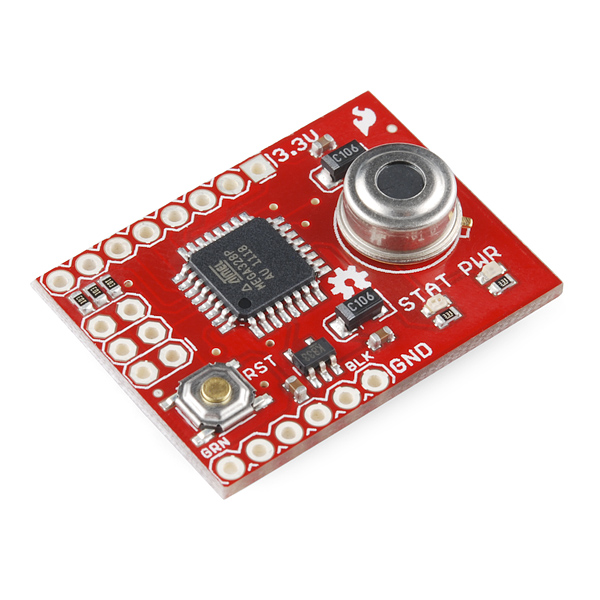Hey guys, I'm here trying to fix a bug that is already happening to me several times, I'm trying to make a connection between two esp's32 for a project, but the only connection that worked is crashing after a few minutes of use ... Could someone help and, if possible, provide links to other types of connections and documentation for them.
Let's go to the error, so I'm using this code:
Server:
//Neste arquivo vão os 'includes' e as configurações pincipais
//que são compartilhadas entre os outros arquivos .ino
#include <WiFi.h>
#define SSID "ESP32Server"
#define PASSWORD "87654321"
#define SERVER_PORT 5000
#define PIN_LED 23
//Protocolo que o Server e o Client utilizarão para se comunicar
enum Protocol{
PIN, //Pino que se deseja alterar o estado
VALUE, //Estado para qual o pino deve ir (HIGH = 1 ou LOW = 0)
BUFFER_SIZE //O tamanho do nosso protocolo. IMPORTANTE: deixar sempre como último do enum
};
//Diretiva de compilação que informará qual arquivo que queremos que seja compilado
//Caso queira que o arquivo Client.ino seja compilado, remova ou comente a linha do '#define' abaixo
//Caso queira que o arquivo Server.ino seja compilado, deixe o '#define IS_SERVER' abaixo descomentado
#define IS_SERVER
//Apenas vai compilar o código contido neste arquivo
//caso IS_SERVER esteja definido
#ifdef IS_SERVER
//Cria o server na porta definida por 'SERVER_PORT'
WiFiServer server(SERVER_PORT);
void setup()
{
Serial.begin(115200);//Inicializa Serial
pinMode(PIN_LED, OUTPUT);
//Coloca este ESP como Access Point
WiFi.mode(WIFI_AP);
//SSID e Senha para se conectarem a este ESP
WiFi.softAP(SSID, PASSWORD);
//Inicia o server
server.begin();
}
void loop()
{
//Verifica se tem algum cliente se conectando
WiFiClient client = server.available();
if (client)
{
//Acende led sinalizando a entrada de um cliente
digitalWrite(PIN_LED, 1);
//Se o cliente tem dados que deseja nos enviar
if (client.available())
{
//Criamos um buffer para colocar os dados
uint8_t buffer[Protocol::BUFFER_SIZE];
//Colocamos os dados enviados pelo cliente no buffer
int len = client.read(buffer, Protocol::BUFFER_SIZE);
//Printa o valor
Serial.print("Size Buffer");
Serial.println(len);
//Verificamos qual o pino que o cliente enviou
int pinNumber = buffer[Protocol::PIN];
Serial.print("PIN ");
Serial.println(buffer[Protocol::PIN]);
//Verificamos qual o valor deste pino
int value = buffer[Protocol::VALUE];
Serial.print("VALUE ");
Serial.println(buffer[Protocol::VALUE]);
//Colocamos o pino em modo de saída
pinMode(pinNumber, OUTPUT);
//Alteramos o estado do pino para o valor passado
digitalWrite(pinNumber, value);
}
//Fecha a conexão com o cliente
client.stop();
}
}
//Encerra o #ifdef do começo do arquivo
#endif
Client:
//Neste arquivo vão os 'includes' e as configurações pincipais
//que são compartilhadas entre os outros arquivos .ino
#include <WiFi.h>
#define SSID "ESP32Server"
#define PASSWORD "87654321"
#define SERVER_PORT 5000
//Protocolo que o Server e o Client utilizarão para se comunicar
enum Protocol{
PIN, //Pino que se deseja alterar o estado
VALUE, //Estado para qual o pino deve ir (HIGH = 1 ou LOW = 0)
BUFFER_SIZE //O tamanho do nosso protocolo. IMPORTANTE: deixar sempre como último do enum
};
//Diretiva de compilação que informará qual arquivo que queremos que seja compilado
//Caso queira que o arquivo Client.ino seja compilado, remova ou comente a linha do '#define' abaixo
//Caso queira que o arquivo Server.ino seja compilado, deixe o '#define IS_SERVER' abaixo descomentado
//Apenas vai compilar o código contido neste arquivo
//caso IS_SERVER NÃO esteja definido
//(if n def, atenção para o 'n')
#ifndef IS_SERVER
//Pino que vamos fazer a leitura
#define IN_PIN 23
#define ChangedPIN 2
void setup(){
Serial.begin(115200);//Inicializa Serial
//Colocamos o pino em modo de leitura
pinMode(IN_PIN, INPUT);
pinMode(ChangedPIN, OUTPUT);
//Defino como modo estação ()Client
WiFi.mode(WIFI_STA);
//Conectamos Access Point criado
//pelo outro ESP
WiFi.begin(SSID, PASSWORD);
//Esperamos conectar
while (WiFi.status() != WL_CONNECTED){
delay(500);
}
}
void loop(){
//Variável que utlizaremos para conectar ao servidor
WiFiClient client;
//Se não conseguiu se conectar então retornamos
if (!client.connect(WiFi.gatewayIP(), SERVER_PORT)){
return;
}
//Acende Led
digitalWrite(ChangedPIN, 1);
//Criamos um buffer para colocar os dados
uint8_t buffer[Protocol::BUFFER_SIZE];
//Fazemos a leitura do pino
int value = digitalRead(IN_PIN);
Serial.println(digitalRead(IN_PIN));
//Colocamos no buffer o número do pino
//cujo estado queremos enviar
buffer[Protocol::PIN] = ChangedPIN;
//Colocamos no buffer o estado atual do pino
buffer[Protocol::VALUE] = value;
//Enviamos e finalizamos a conexão
client.write(buffer, Protocol::BUFFER_SIZE);
client.flush();
client.stop();
}
//Encerra o #ifndef do começo do arquivo
#endif
What I got from this site:
The problem is that after a few minutes the connection is stuck, I realized that being a socket connection rather than HTTP, it closes and opens the connection to the Server several times; Is this what is causing the failures? I used a delay at the end, but it was no use. I really need help.
Blink leds to show the connection start, sorry if you are wrong.

